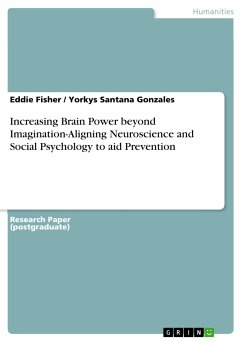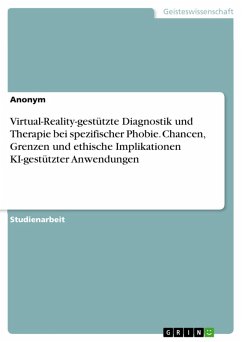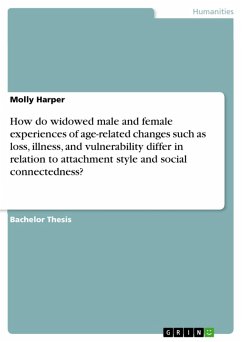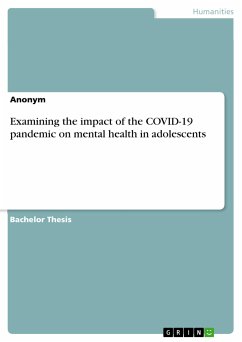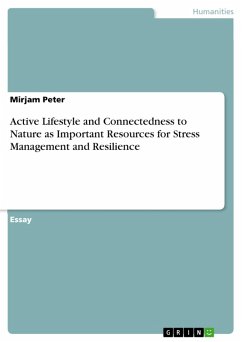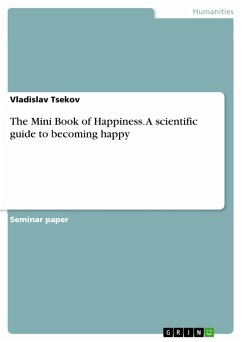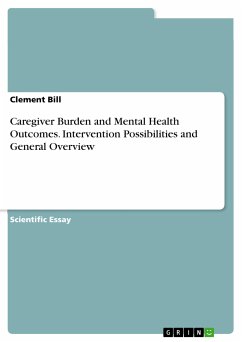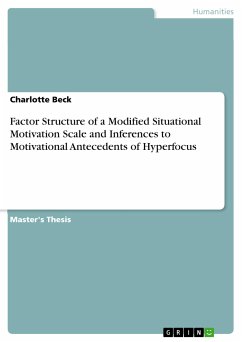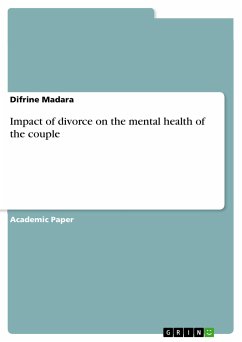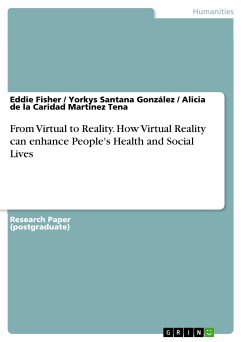
From Virtual to Reality. How Virtual Reality can enhance People's Health and Social Lives (eBook, PDF)
Sofort per Download lieferbar
Statt: 17,95 €**
13,99 €
inkl. MwSt. und vom Verlag festgesetzt.
**Preis der gedruckten Ausgabe (Broschiertes Buch)
Alle Infos zum eBook verschenkenWeitere Ausgaben:

PAYBACK Punkte
0 °P sammeln!
Research Paper (postgraduate) from the year 2019 in the subject Psychology - Miscellaneous, Universidad de Oriente in Santiago de Cuba (Faculty of Social Sciences), course: Social Psychology and Brain Science, language: English, abstract: The application of Virtual Reality (VR) has an increasing capacity to simulate everyday environments. It provides multimodal sensory stimulations that have the ability to influence the human brain to correct neurological and cognitive rehabilitation/behavioral disorders. The purpose of this research is to determine how Virtual Reality (VR) could aid the quest...
Research Paper (postgraduate) from the year 2019 in the subject Psychology - Miscellaneous, Universidad de Oriente in Santiago de Cuba (Faculty of Social Sciences), course: Social Psychology and Brain Science, language: English, abstract: The application of Virtual Reality (VR) has an increasing capacity to simulate everyday environments. It provides multimodal sensory stimulations that have the ability to influence the human brain to correct neurological and cognitive rehabilitation/behavioral disorders. The purpose of this research is to determine how Virtual Reality (VR) could aid the quest to eliminate or reduce mental disorders/the effects of brain injuries. The outcome suggests that appropriate applications of VR can lead the human brain to improve/reverse neurological activities that lead to mental disorders such as dementia, Alzheimer's and brain injuries caused by accident or strokes. Cognitive rehabilitation and behavioral therapists would benefit from the application of VR to improve the therapeutic experiences of brain injury or anxiety disorder patients. The coming together of involved parties such as individuals, society, manufacturers of VR technology, neurosurgeons, neurologists and social psychology are paramount to the success of this considered approach to eliminate/reduce various types of mental disorders.
Dieser Download kann aus rechtlichen Gründen nur mit Rechnungsadresse in A, B, BG, CY, CZ, D, DK, EW, E, FIN, F, GR, HR, H, IRL, I, LT, L, LR, M, NL, PL, P, R, S, SLO, SK ausgeliefert werden.




